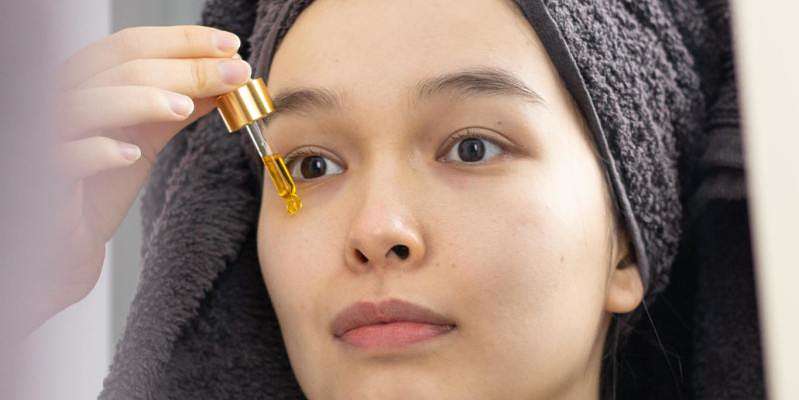Dealing with acne can be frustrating and challenging, but with the right skincare routine, you can help manage breakouts and achieve clearer, healthier-looking skin.
Acne-prone skin requires special care and attention to prevent breakouts, reduce inflammation, and promote healing.
By adopting a gentle and consistent skincare routine, you can help keep acne at bay and maintain a clear complexion. Here are some effective skincare tips for acne-prone skin:
Cleanse Twice Daily:
Cleansing your skin twice a day is essential for removing excess oil, dirt, and impurities that can clog pores and lead to breakouts.
Use a gentle, fragrance-free cleanser that is specifically formulated for acne-prone skin. Avoid harsh cleansers that can strip your skin of its natural oils and exacerbate acne.
Use Non-Comedogenic Products:
Choose skincare and makeup products that are labeled “non-comedogenic,” which means they are less likely to clog pores and cause breakouts.
Look for products that are oil-free, fragrance-free, and suitable for acne-prone skin. Avoid heavy, greasy products that can contribute to acne and opt for lightweight, oil-free formulas instead.
Exfoliate Regularly:
Exfoliation helps remove dead skin cells from the surface of your skin, which can help prevent clogged pores and breakouts.
Use a gentle exfoliating scrub or chemical exfoliant containing salicylic acid or glycolic acid to unclog pores and improve skin texture. Limit exfoliation to 2-3 times per week to avoid over-exfoliating and irritating your skin.
Moisturize Daily:
Even acne-prone skin needs moisture to stay healthy and balanced. Use a lightweight, oil-free moisturizer that won’t clog pores or exacerbate breakouts.
Look for moisturizers that contain ingredients like hyaluronic acid, glycerin, and ceramides to hydrate and soothe your skin without causing acne.
Use Spot Treatments:
Spot treatments containing ingredients like benzoyl peroxide, salicylic acid, or sulfur can help target individual breakouts and reduce inflammation.
Apply a small amount of spot treatment to clean, dry skin before moisturizing. Be careful not to over-apply spot treatments, as this can dry out your skin and cause irritation.
Protect Your Skin from the Sun:
Sun exposure can exacerbate acne and cause inflammation and hyperpigmentation, so it’s important to protect your skin from the sun’s harmful UV rays.
Apply a broad-spectrum sunscreen with an SPF of 30 or higher to your face and other exposed areas of skin every day, even on cloudy days. Reapply sunscreen every two hours, or more often if you’re swimming or sweating.
Avoid Touching Your Face:
Touching your face can transfer dirt, oil, and bacteria from your hands to your skin, leading to breakouts and irritation.
Avoid touching your face throughout the day, and be sure to wash your hands regularly with soap and water. If you need to touch your face, use a clean tissue or cotton pad to avoid transferring bacteria.
Be Patient and Consistent:
Treating acne takes time and patience, so it’s important to be consistent with your skincare routine and give your skin time to respond to treatment.
Stick to your skincare regimen and follow the instructions provided by your dermatologist or skincare professional.
Results may not be immediate, but with continued use of effective treatments, you should start to see improvement in your acne over time.
Consider Professional Treatments:
If you’re struggling to manage your acne with at-home skincare products alone, consider professional treatments such as chemical peels, microdermabrasion, laser therapy, or prescription medications.
These treatments can help reduce inflammation, unclog pores, and promote healing. Consult a dermatologist or skincare professional to discuss which treatment option is best for you.
Conclusion
Managing acne-prone skin requires a gentle and consistent skincare routine that focuses on cleansing, exfoliating, moisturizing, and protecting your skin from the sun.
By incorporating these effective skincare tips into your routine, you can help prevent breakouts, reduce inflammation, and achieve clearer, healthier-looking skin.
Be patient, consistent, and gentle with your skin, and consult a dermatologist or skincare professional for personalized advice and treatment options. With dedication and proper care, you can achieve the clear, blemish-free skin you desire.
